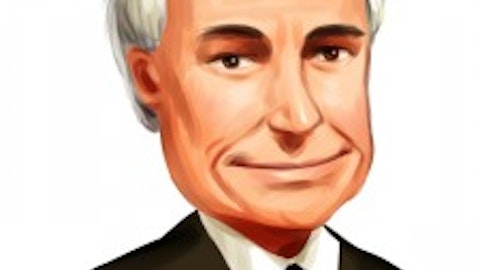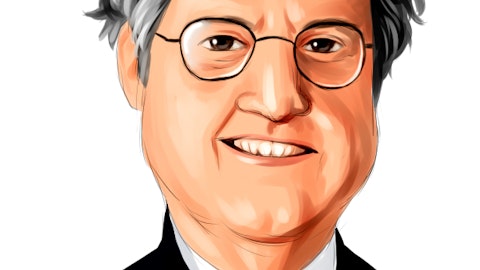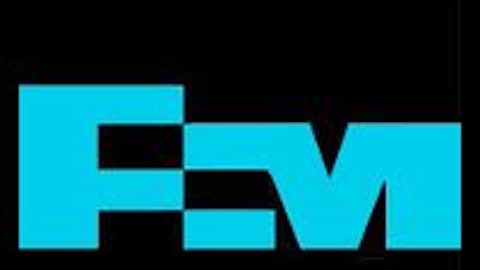At the 2012 Invest for Kids conference, Kyle Bass of Hayman Advisors spoke about the vastness of Japan’s economic woes. Bass founded Dallas-based hedge fund Hayman in 2005. Prior to Hayman Advisors, Kyle Bass worked at Bear Stearns and Legg Mason. Check out all of Bass’s top stock picks. Bass sees serious issues with Japan, and believes “they have already passed the Rubicon…with current debt levels over 25 times its 2011 tax revenues.”
Bass believes that the boycott of Japanese goods by the Chinese could have a bigger impact on Japan’s economy than many are forecasting. Japan expects exports to be down 35%-75% and Bass believes the impact of this will show itself much sooner than analysts anticipate, especially given the various number of other factors that will further push Japan’s economy down.
One of the key pressures on Japan is the crossover of birth rates to death rates, where there are now more deaths than births in Japan. Japan is currently selling more adult diapers than children’s diapers. This is a sign of a declining population, which is a big negative, as Bass points out that a ponzi scheme “can be kept up as long as there are more dummies entering the market than exiting.” The final note predicting a Japanese collapse is the recent flood of wealthy investors taking money out of Japan, exhibited by the Japanese mobile company Softbank’s investment in Sprint and Dentsu’s purchase of the U.K. based Aegis.
Given that Bass believes that Japan is on the brink of implosion, we thought it best to address the key companies that have a high amount of exposure to Japan; these stocks include Aflac Incorporated (NYSE:ALF), Tiffany & Co. (NYSE:TIF), Coach, Inc. (NYSE:COH), Freeport-McMoRan Copper & Gold Inc. (NYSE:FCX) and Adobe Systems Incorporated (NASDAQ:ADBE). All five of these stocks got over 10% of their most recent fiscal year revenue from Japan.
Aflac got over 80% of its revenue from Japan and is still in recovery mode following the Japanese earthquake, seeing a strong sales increases in 2011 of 14% and an expected high single-digit growth in 2012. The insurer’s strong capital position should allow it to continue to increase its dividend, which currently yields 2.8%. An even slower Japanese economy could have an impact on both the life insurance and health insurance segments of Aflac, where individuals opt to save money and forgo both insurances.
Our two high-end retailers, Tiffany and Coach, both got around 17% of their revenues from Japan last fiscal year. These retailers may well see the biggest hit as Japanese consumers trade down. Tiffany has preformed relatively well amidst economic uncertainty, with sales expected to be up 6% in 2013 and plans of opening 19 stores. The retailers’ strongest segment for the first half of the year was Japan, up 11% in revenue from the same period last year.
Coach might be better served than Tiffany should Japan experience a vast slowdown. Coach plans to expand internationally, with a focus on the U.S. and China. Coach is also looking for to its Men’s segment to drive growth. Its men’s business doubled revenue during the most recent quarter, with sales in China specifically growing by 60%. Tiffany and Coach trade in line with their industry at 18x and 15x, respectively. Check out our other thoughts on buying luxury retailers.
Freeport got over 30% of its revenues from Japan last fiscal year, and is a Tontine Asset Management top pick. Freeport is expected to grow sales by 30% in 2013 on the back of sizable copper production. Longer-term growth will be driven by continued copper demand and higher gold prices. The actual geographical exposure should be focused more toward China and India to drive growth, as opposed to Japan. The fear with Freeport’s current valuation is that it appears cheap on a valuation basis at 13x earnings, but the growth metrics hinge a lot on China’s slowing economy.
Adobe has the least exposure of our five stocks, with 12% of its revenues derived from Japan last fiscal year. Sales forecasts have been lowered of late, with expected revenue to be up only 5% in 2012 as global economic conditions pressure the company. This includes a fear of a further slowdown in Europe. The tech company now plans to look to smaller acquisitions to fuel future growth. Adobe trades at 21x earnings, compared to Citrix at 32x, and below Adobe’s historical P/E of 26x.
We are most intrigued by how Adobe and Aflac will be able to mitigate a slowdown in Japan. The big name investor owning Adobe in 2Q was Jeff Ubben; he had almost 15% of his fund’s 2Q 13F invested in Adobe. Ubben also presented at this year’s Invest For Kids conference, where he gave his highest marks to a real estate servicer. Although Aflac has the most exposure to Japan out of the stocks we’ve discussed, it has still attracted top name investors like Bill Miller, John Rogers and Jim Simons. Check out all funds invested in Aflac.






